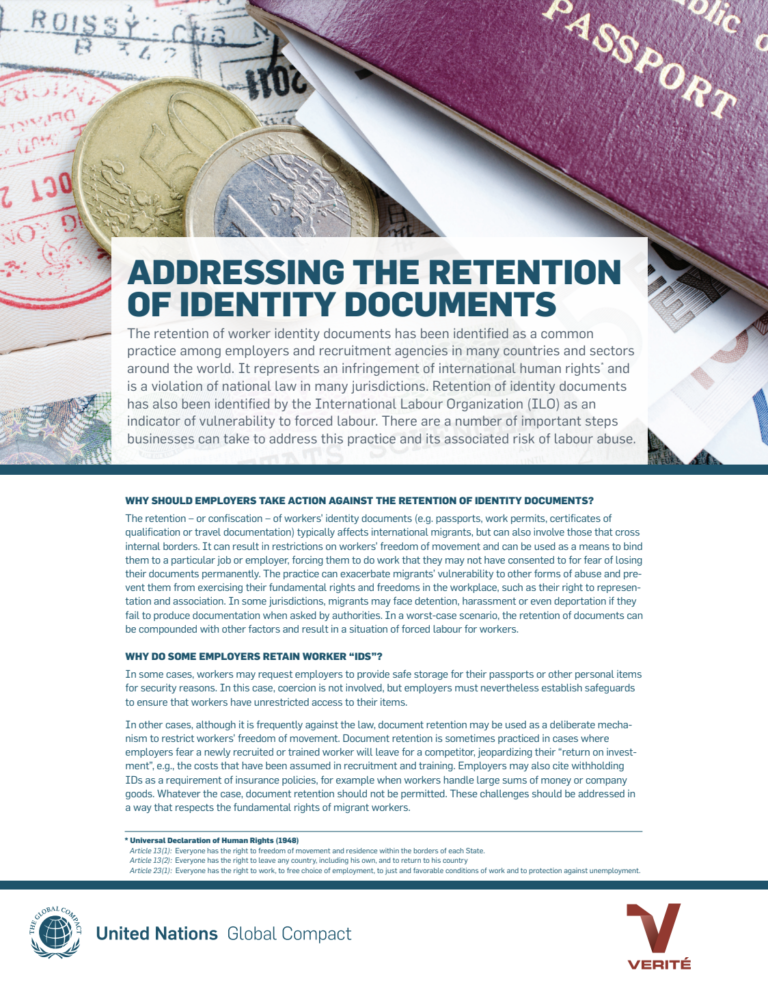Anti-Human Trafficking Authentication Criteria Company-level and Site-Level
GuidanceThe following criteria can be used by any organization to help it design an effective and transparent system for preventing human trafficking in its operations and those of its supply chain. It can also be used by an organization or an independent t...Read More

